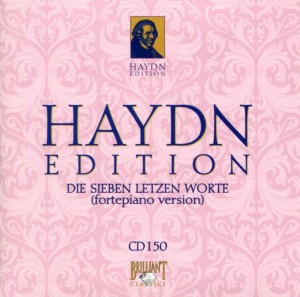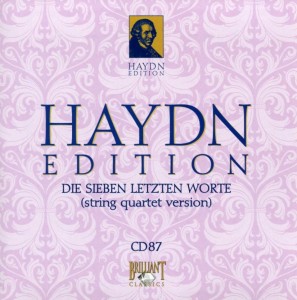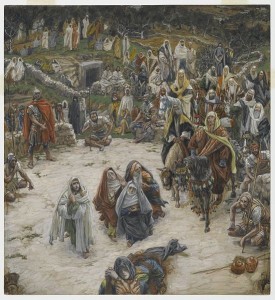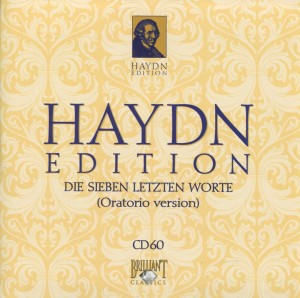 Today’s CD is the pianoforte version of Haydn’s symphony Die Sieben Letzten Worte (the Seven Last Words of Christ), which was composed in 1787. Haydn was 55 years old.
Today’s CD is the pianoforte version of Haydn’s symphony Die Sieben Letzten Worte (the Seven Last Words of Christ), which was composed in 1787. Haydn was 55 years old.
The pianoforte version is played by Bart van Oort.
Originally commissioned for a full orchestra, Die Sieben Letzten is composed of nine movements, described this way:
The seven main meditative sections — labelled “sonatas” and all slow — are framed by an Introduction and a speedy “Earthquake” conclusion, for a total of nine movements…The seven meditations on the Last Words are excerpted from all four gospels. The “Earthquake” movement derives from Matthew 27:51ff. Much of the work is consolatory, but the “Earthquake” brings a contrasting element of supernatural intervention — the orchestra is asked to play presto e con tutta la forza — and closes with the only fortississimo (triple forte) in the piece.
Today’s CD marks the end of my exploration of Haydn’s music. Thanks to the incredible Brilliant Classics record label, I was able to listen to Haydn’s entire creative output.
If you want to hear great music at an affordable price, you cannot go wrong with the Brilliant Classics label. If you want your own 150-CD Haydn Edition, visit Amazon. As of today’s date (February 27, 2014), the Hayden Edition is just $130 for 150 CDs. I’m no math wizard. But according to my calculations that’s less than $1 per disc.
Unheard of. Buy it. You won’t regret it.
So, good bye, Haydn.
Good bye, also to the people from seven countries who visited this blog since the beginning.
Here’s what I listened to today:
Frankly, I prefer van Oort’s pianoforte version over the full orchestra. I think it’s because the pianoforte – along with van Oort’s exceptional talent playing it – helps bring out the emotion of Haydn’s composition.
Piano is often a very melancholy instrument for me., anyway. When it plays Die Sieben it’s a perfect fit.
Favorite!
NOTE: If you’re interested in Woody Allen, stick around. Tomorrow, I start watching everything Woody directed, in chronological order.



